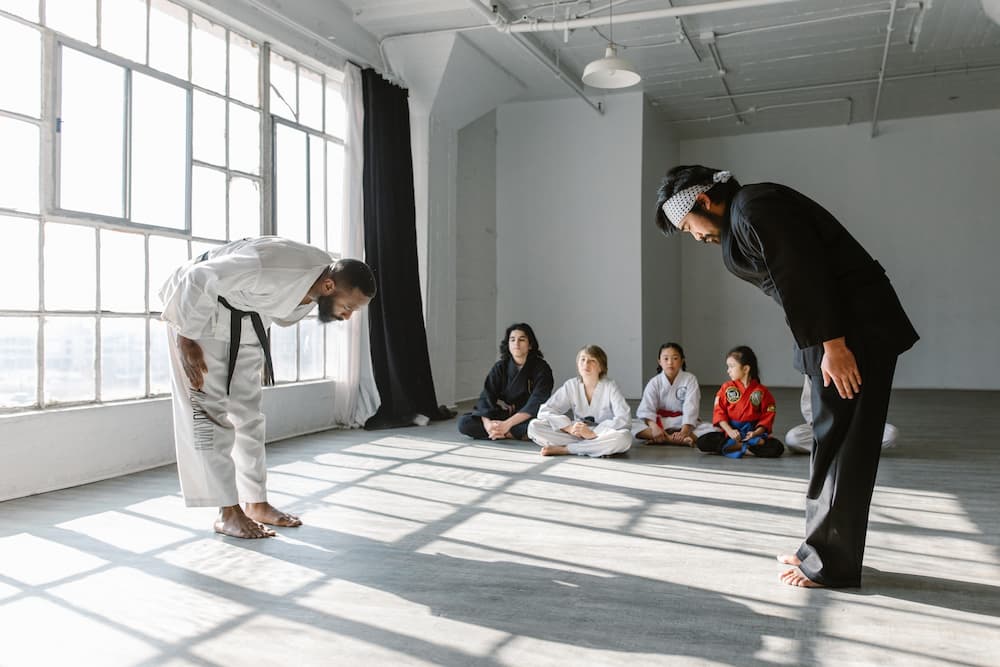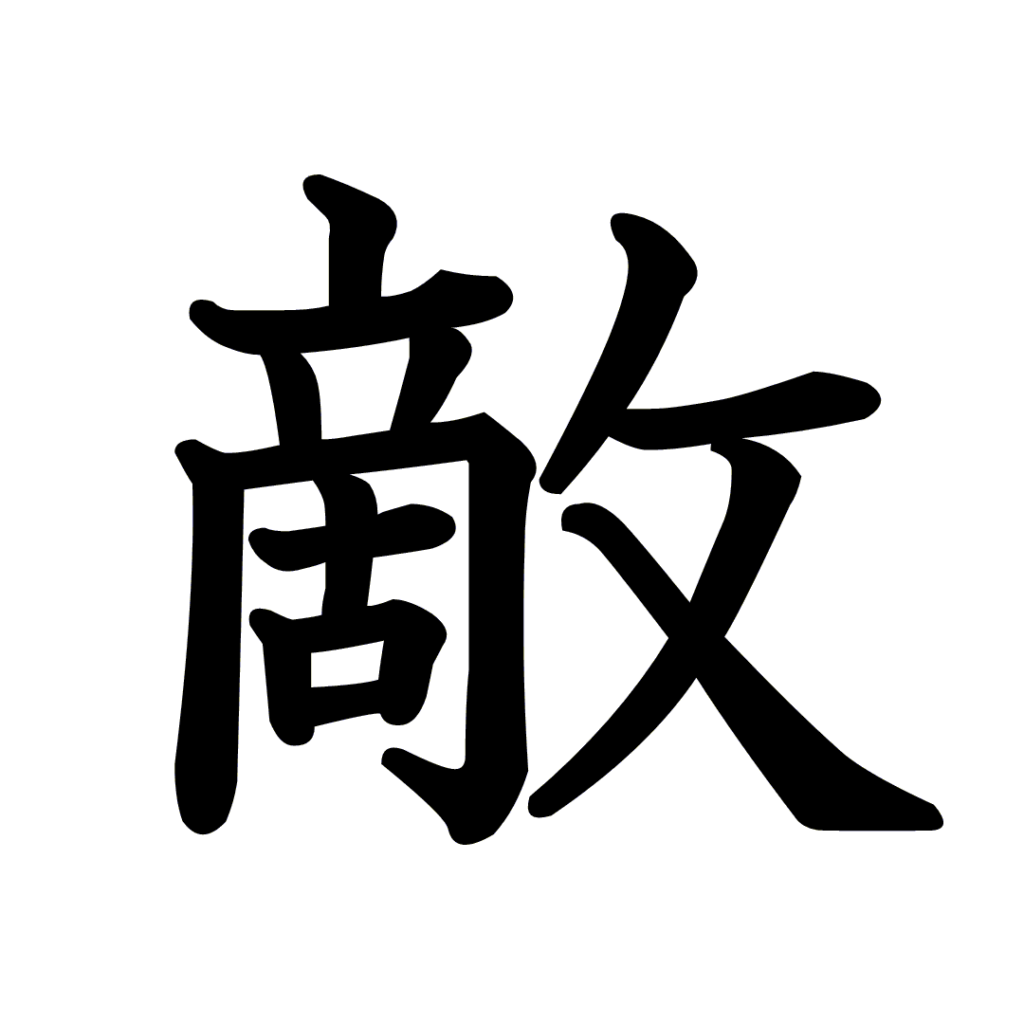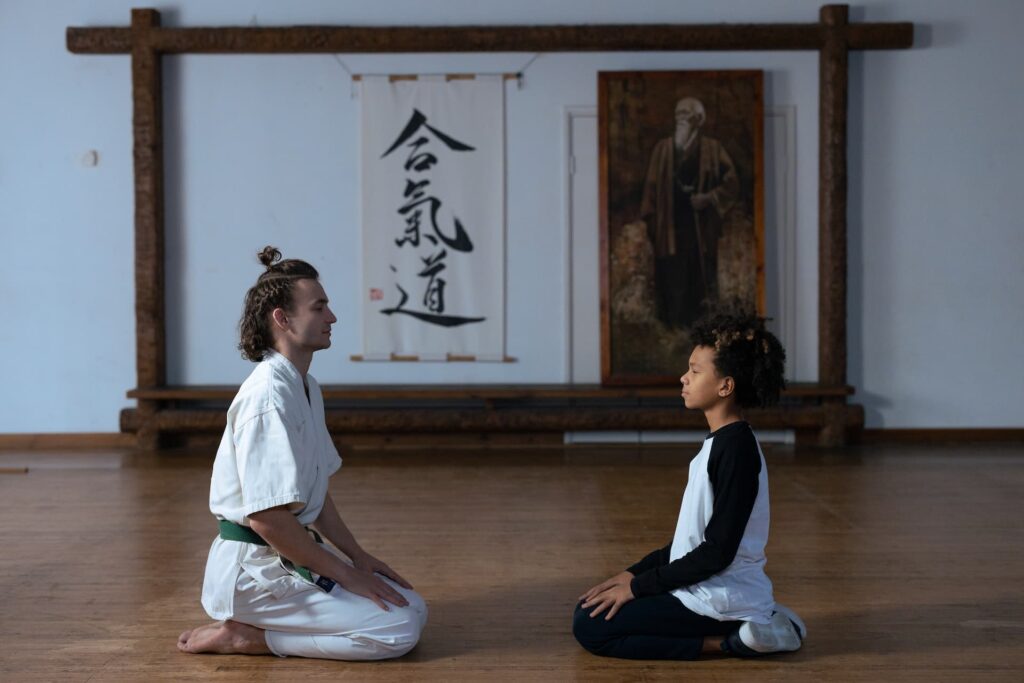Respect is vital to the personal discipline of martial arts. Over time and in many diverse cultures, respect for ourselves and for others is emphasized as a foundational personal strength.
Bushido, the warrior code of the samurai, strongly stressed respect. The knightly virtues of the Middle Ages highlighted courtesy – behavior that demonstrates respect – as a central principle. The Satori-ryu Budo teaches that every lesson begins and ends with courtesy and respect. John Schofield linked discipline, leadership, and respect in his address to the cadets at West Point in 1879. This last is such important guidance that all United States Army and Air Force officers memorize it to this day.
What do we mean by “respect”? How do we understand and practice this core personal strength in martial arts?

The term originally comes from the Latin word respectus, which means “attention, regard, or consideration.”
In English, respect is our feeling and showing esteem and admiration for someone or something. It expresses our high regard for qualities and accomplishments we consider positive and valuable.

Respect is a multifaceted personal strength. In different situations, we apply respect in varying but related ways. We feel and show respect for others. We earn their respect – and when needful, we insist on their respect as our due. And we also treat ourselves with proper respect.
In the martial arts, we understand and practice respect in three major areas: for individual human worth; for traditions, institutions and authority sanctioned by the greater community; and for demonstrated excellence and accomplishment.
Let’s have a look at all three of these areas of respect in more detail.
We recognize and treat people as inherently valuable and worthwhile. We pay this respect regardless of our feelings about an individual – they don’t have to earn it from us. This is also known as “human recognition respect” or “personhood respect.”
In our martial arts lessons, we practice this form of respect by:
2. Respect for traditions, institutions and authority sanctioned by the greater community.
We recognize that our traditions and social structures give our community as a whole meaning and allow it to function. We understand that rules of conduct and formal laws are essential, and we are willing to be bound by them. We pay respect and show deference to those placed in positions of social responsibility or institutional authority. In its largest sense, this is our respect for civilized society, whatever our personal role within it may be.
In our martial arts lessons, we practice this form of respect by:
3. Respect for excellence.
This is also known as “respect of honor.” This is the esteem and admiration we accord to someone for their individual deeds and accomplishments, demonstrated special qualities, or strengths of character. We recognize and acknowledge someone’s excellence in a specific area of endeavor. We honor their achievements. We are willing to defer to them in their field of excellence. When we speak of someone “earning respect” what we typically mean is this respect of excellence.
In our martial arts lessons, we practice this form of respect by:
Martial arts such as Taekwondo, Iaido and Karate use a carefully structured system of ranks to track student progress. These ranks are marked by a special set of colored belts. As a student increases their knowledge and abilities, they demonstrate their skills to their instructors and fellow students at formal rank tests. Upon successfully completing the test a student earns advancement to their next rank. They are publicly presented with their new belt at a special ceremony in front of their peers.

A student only earns Black Belt rank after several years of sweat, toil, dedicated training, and steadfast personal commitment. That student also thoroughly earns the respect of excellence that goes along with it.
The respect we learn and practice in our martial arts lessons has tangible benefits well outside of the dojo:
Respect is a foundational personal strength. It is a core principle of martial arts. Whether we train in Karate, Iaido or Taekwondo, we practice respect in every lesson together. We strengthen our understanding of what respect is, how it works – and why it matters.
We also earn respect from others – and bedrock self-respect from ourselves.
Please contact our school directly if you would like more information about becoming a student with us.
Copyright © Broadway Family Karate 2024 Design by The Visibility Method